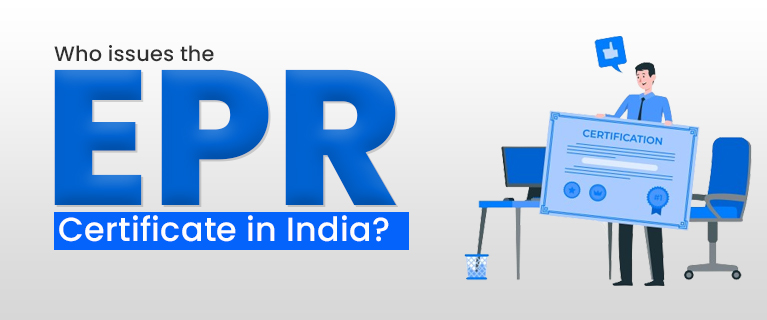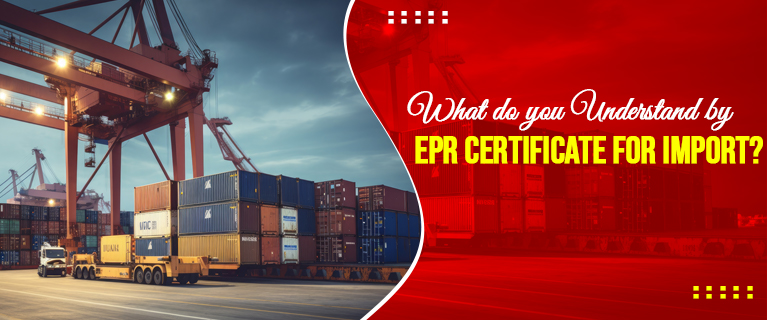How much does it Cost to Register a Company in Singapore?
Registering a company in Singapore offers numerous benefits due to its business-friendly environment, tax incentives, and strategic location. This article breaks down the process into simpler terms, discussing the steps involved and the costs associated with setting up a company in Singapore.
Registering a company in Singapore involves several steps, each of which contributes to the legal establishment of your business entity.
Process of Registering a company in Singapore
1. Choose a Business Structure:
Select the type of business structure you want to incorporate. The common business structures in Singapore are Private Limited Company (Pte Ltd), Sole Proprietorship, and Limited Liability Partnership (LLP). A Private Limited Company is often preferred due to its separate legal entity status, limited liability, and ease of raising capital.
2. Select a Company Name:
The name must not infringe on any existing trademarks and should not be offensive or misleading. ACRA's online database can be used to check the availability of your chosen name.
Read Also This – Setup Company In Singapore With Fast Incorporation Service3. Appoint Directors and Shareholders:
A Singapore corporation is required to have at least one resident director. Foreign individuals can also become directors by obtaining relevant work passes. Shareholders can be individuals or corporate entities. A company can have a minimum of one shareholder and a maximum of 50 shareholders.
4. Appoint a Company Secretary:
Every company in Singapore must appoint a qualified company secretary within six months of incorporation. The company secretary ensures compliance with legal requirements and maintains necessary company records.
5. Prepare Documents:
Prepare the necessary documents, including the company's constitution (formerly known as Memorandum and Articles of Association), consent to act as directors and shareholders, and identification documents of directors, shareholders, and company secretary.
6. Register with ACRA:
The company registration process is done through ACRA's online portal. You'll need to provide the chosen company name, details of directors and shareholders, company secretary details, and the registered office address. Pay the required registration fee, which includes the name reservation fee.
7. Obtain Necessary Licenses and Permits:
You could require particular licenses or permits to operate legally according to the nature of your business activity. Research and identify any industry-specific requirements and apply for the necessary licenses.
8. Registered Office Address:
Your business must have a Singapore registered office address. Official mail should be sent to this address. It can't be a P.O. Box; it needs to be a real address.
9. Open a Corporate Bank Account:
After incorporation, open a corporate bank account for your company. Business banking services are available in most of the banks in Singapore. Prepare the required documents, which typically include the Certificate of Incorporation, company constitution, and identification documents of directors and shareholders.
10. Comply with Tax Registration:
Register for Goods and Services Tax (GST) if your company's expected annual turnover exceeds the threshold. If required, obtain the necessary tax identification numbers and comply with other tax obligations.
11. File Annual Returns:
Once your company is registered, you are required to file annual returns with ACRA. These returns include details of shareholders, directors, and the company's financial statements.
12. Compliance with Employment Regulations:
If you plan to hire employees, ensure compliance with employment regulations, including work pass applications and employment contracts.
13. Compliance with Accounting Standards:
Maintain accurate accounting records and prepare financial statements in accordance with Singapore's accounting standards. This is crucial for tax reporting and compliance.
14. Ongoing Compliance:
Ensure ongoing compliance with ACRA regulations, tax requirements, and any industry-specific regulations applicable to your business.
Read Also This – A Comprehensive Guide to Company Formation in SingaporeCosts Associated with Registering a Company in Singapore:
Registering a company in Singapore involves careful planning, document preparation, and adherence to legal requirements. Engaging the services of a Corporate Services Provider can help simplify the process and ensure that all steps are carried out accurately and efficiently. It involves various costs, which can vary based on factors such as the type of business entity, required services, and additional licenses or permits. Here is a general breakdown of the costs associated with registering a company in Singapore:
1. Company Registration Fee:
The company registration fee is a mandatory cost payable to the Accounting and Corporate Regulatory Authority (ACRA) for processing your company's registration. This fee covers the administrative expenses involved in incorporating your business entity.
2. Name Reservation Fee:
Before registering your company, you need to ensure that your chosen company name is available and unique. The name reservation fee is paid to ACRA to secure the chosen name for your business during the registration process.
3. Engaging a Corporate Services Provider (CSP)
Many businesses opt to engage the services of a Corporate Services Provider to assist with the company registration process and ongoing compliance requirements. The fees for CSP services can vary based on the level of support you require. CSPs can offer expertise in areas such as company formation, corporate governance, and regulatory compliance.
4. Local Resident Director Fee
Singapore law requires that every company has at least one local resident director. If you don't have a local director available, you might need to engage a nominee director service. This involves hiring a qualified individual who meets the residency requirements to act as the director on your behalf.
5. Company Secretary Fee
Appointing a company secretary is mandatory for all companies in Singapore. The company secretary is responsible for ensuring that the company complies with statutory requirements. The annual fee for a company secretary varies based on the complexity of the company's operations.
6. Registered Office Address
Every company must have a registered office address in Singapore. If you don't have a physical office space, you can use the services of a registered office address provider. This service provides you with a legal address for official correspondence.
7. Work Passes
If you plan to relocate to Singapore or hire foreign employees, you may need to apply for work passes such as the Employment Pass (EP) or Entrepreneur Pass (EntrePass). Each pass has its own processing fees, which vary based on factors such as the applicant's qualifications and the type of pass applied for.
8. Business Licenses and Permits
Depending on the nature of your business activities, you might require specific licenses and permits from relevant regulatory authorities. These licenses can vary in cost depending on the industry and the type of permit needed to operate legally.
9. Capital Requirements
While there is no specific minimum capital requirement for most businesses in Singapore, certain industries might have capital requirements. It's important to consider the initial capital you plan to invest in your business when calculating your startup costs.
10. Additional Services
Depending on your business needs, you might require additional services such as tax planning, accounting, and compliance services. These services come with their own fees and are crucial for maintaining accurate financial records and adhering to legal requirements.
To Sum up, the costs associated with setting up a company in Singapore can vary based on a variety of factors. It's essential to carefully assess your business requirements, consider the services you need, and budget for these costs to ensure a smooth registration process and successful business operation.
Benefits of Registering in Singapore
1. Tax Benefits: Tax Exemptions, 0% Tax on Dividends and Capital Gains
Singapore offers a highly attractive tax regime for businesses, making it a preferred destination for entrepreneurs. The tax benefits include:
Tax Exemptions: Newly incorporated companies can benefit from tax exemptions on a significant portion of their profits for the first few years. For the first three years, up to 75% of the first S$100,000 of profits are exempt from taxes, leading to substantial cost savings.
0% Tax on Dividends and Capital Gains: Singapore does not impose taxes on dividends and capital gains. This tax structure promotes business growth and encourages reinvestment of profits, making it an ideal environment for companies to flourish.
2. Entrepreneur-Friendly Policies: Grants, Tax Incentives, and Assistance Schemes
Singapore's government actively supports entrepreneurship through various policies and programs:
Grants: Start-ups can access grants that provide financial assistance for specific business activities, such as research and development, technology adoption, and international expansion.
Tax Incentives: There are specialized tax incentives available for certain industries or activities, such as research and development, intellectual property, and international trading.
Assistance Schemes: Programs like the Productivity Solutions Grant (PSG) subsidize costs for technology adoption, enhancing business operations and competitiveness.
3. Strategic Location: Access to Regional Markets
Singapore's strategic geographical location offers businesses easy access to a vast and diverse range of markets in the Asia-Pacific region. The well-connected transport infrastructure, including Changi International Airport and seaports, facilitates efficient import and export activities.
4. Talented Workforce: Highly Educated, English-Speaking Workforce
Singapore boasts a skilled and well-educated workforce. The education system produces a pool of talent proficient in English, which is widely used for business communication globally. This language proficiency reduces barriers for international companies and supports effective collaboration.
5. Telecommunication Infrastructure: Reliable and Efficient Connectivity
Singapore's advanced telecommunication infrastructure ensures seamless and reliable communication. With widespread access to high-speed internet and a robust network, businesses can operate efficiently, conduct online transactions, and communicate across borders without interruption.
6. Anti-Corruption Stance: Strong Policies Against Corruption
Singapore has a robust legal framework and strict policies against corruption. This environment fosters a level playing field for businesses, ensuring that success is achieved based on merit rather than unethical practices.
7. Easy Company Registration: Simplified Process with Low Requirements
Singapore's streamlined company registration process reduces administrative burdens for entrepreneurs. The clear and concise steps, along with the efficient regulatory environment, enable swift company setup. The minimal capital requirement of just S$1 encourages small and medium-sized enterprises to establish their presence
Registering a company in Singapore offers a multitude of advantages, from favourable tax policies to a supportive business ecosystem. The combination of tax benefits, entrepreneur-friendly policies, strategic location, skilled workforce, robust infrastructure, ethical business environment, and simplified registration process makes Singapore an ideal destination for startups and established businesses alike.
Read Also This – How To Do Dubai Business Setup of a SchoolConclusion:
Registering a company in Singapore presents a golden opportunity for entrepreneurs due to its business advantages, tax incentives, and ease of setup. By understanding the simplified steps and costs involved, aspiring business owners can confidently embark on their journey to establish a successful company in this dynamic and vibrant business hub.










